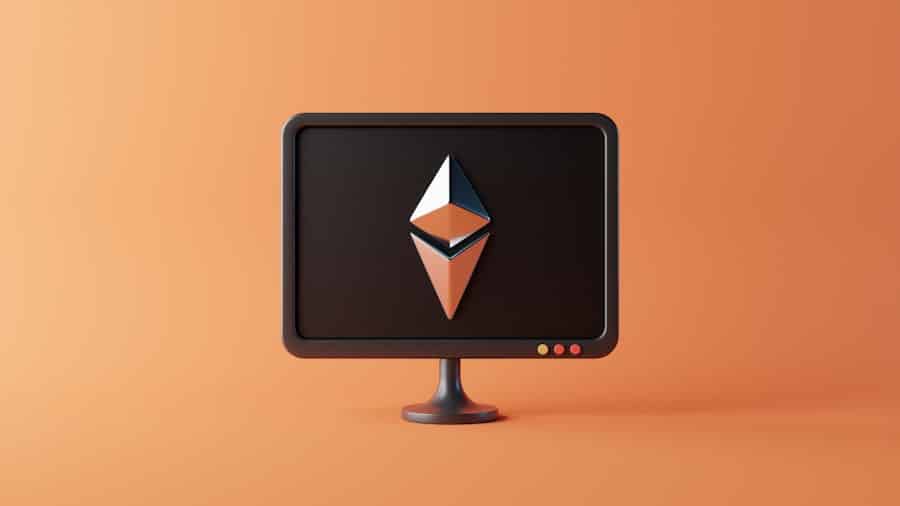The concept of the metaverse has evolved from a niche idea in science fiction to a burgeoning reality that is reshaping various sectors, including governance and policy-making. Metaverse-based think tanks represent a novel approach to collective intelligence and collaborative problem-solving, leveraging immersive technologies to foster dialogue and innovation. These digital environments allow stakeholders from diverse backgrounds to engage in discussions, simulations, and brainstorming sessions in ways that traditional think tanks cannot replicate.
By creating a shared virtual space, metaverse think tanks can transcend geographical barriers, enabling participation from global experts, policymakers, and citizens alike. The integration of the metaverse into think tank operations offers a unique platform for visualizing complex data and scenarios. Participants can interact with 3D models, simulations, and real-time analytics, enhancing their understanding of intricate policy issues.
This immersive experience not only facilitates deeper engagement but also encourages creative solutions that might not emerge in conventional settings. As the world grapples with multifaceted challenges such as climate change, public health crises, and social inequality, the potential of metaverse-based think tanks to foster innovative policy solutions becomes increasingly significant.
Key Takeaways
- Metaverse-based think tanks are virtual spaces where policy makers and experts can collaborate and innovate in policy development using metaverse technology.
- Metaverse technology has the potential to revolutionize policy making by providing immersive and interactive platforms for collaboration, data visualization, and simulation.
- Advantages of utilizing metaverse platforms for policy development include increased accessibility, cost-effectiveness, and the ability to engage a diverse range of stakeholders from around the world.
- Challenges and limitations of metaverse-based think tanks include issues of digital divide, data security, and the need for regulations and standards to govern virtual policy development.
- Case studies of successful policy development in the metaverse demonstrate the potential for innovative and inclusive approaches to addressing complex societal challenges.
The Impact of Metaverse Technology on Policy Making
Enhanced Policy Development through Simulation
Policymakers can simulate the effects of proposed regulations or initiatives within a virtual space, enabling them to visualize outcomes before making decisions in the real world. This capability is particularly valuable in complex scenarios where multiple variables interact, such as urban planning or environmental regulation.
Democratizing Policy-Making through Inclusivity
Moreover, the metaverse facilitates greater inclusivity in the policy-making process. Traditionally, public consultations have been limited by physical attendance and accessibility issues. In contrast, metaverse platforms can accommodate a diverse range of participants, including those who may be marginalized or unable to attend in-person meetings.
Improved Policy Legitimacy and Effectiveness
This democratization of policy-making not only enriches the discussion with varied perspectives but also fosters a sense of ownership among stakeholders. As citizens engage more actively in shaping policies that affect their lives, the legitimacy and effectiveness of those policies are likely to improve.
Advantages of Utilizing Metaverse Platforms for Policy Development

One of the primary advantages of utilizing metaverse platforms for policy development is the enhanced engagement they offer. Traditional methods of consultation often result in passive participation, where stakeholders may feel disconnected from the process. In contrast, the immersive nature of the metaverse encourages active involvement through interactive features such as avatars, virtual workshops, and collaborative tools.
Participants can express their views more freely and creatively, leading to richer discussions and more innovative solutions. Additionally, metaverse platforms provide powerful visualization tools that can transform complex data into comprehensible formats. Policymakers can use 3D models to represent urban environments or environmental impacts, allowing stakeholders to grasp the implications of various policy options more intuitively.
For instance, a city planning initiative could be visualized in a virtual environment where participants can explore different zoning scenarios or infrastructure projects. This level of interactivity not only aids understanding but also fosters a collaborative spirit as participants work together to refine ideas and address concerns.
Challenges and Limitations of Metaverse-Based Think Tanks
Despite the promising potential of metaverse-based think tanks, several challenges and limitations must be addressed for them to realize their full impact on policy development. One significant concern is the digital divide; not all individuals have equal access to the technology required to participate in metaverse environments.
Policymakers must consider these disparities to ensure that metaverse initiatives do not inadvertently reinforce existing inequalities. Another challenge lies in the complexity of navigating virtual environments. While immersive technologies can enhance engagement, they also require users to adapt to new interfaces and interactions that may be unfamiliar.
This learning curve can deter participation, particularly among individuals who are less tech-savvy or who may feel overwhelmed by the virtual experience. Furthermore, there are concerns regarding data privacy and security within these platforms. As participants share personal information or engage in discussions about sensitive topics, ensuring robust protections against data breaches becomes paramount.
Case Studies of Successful Policy Development in the Metaverse
Several case studies illustrate the successful application of metaverse technology in policy development. One notable example is the use of virtual reality simulations by urban planners in various cities worldwide. In these cases, planners have created detailed 3D models of urban environments that allow stakeholders to visualize proposed developments and their potential impacts on local communities.
For instance, a city might host a virtual town hall meeting where residents can explore a proposed park design in an immersive environment, providing feedback on aesthetics and functionality before any physical work begins. Another compelling case is the use of augmented reality (AR) in environmental policy discussions. In one instance, a nonprofit organization utilized AR technology to overlay data about air quality and pollution levels onto real-world locations during community meetings.
Participants could see how different policy options might affect their neighborhoods in real time, fostering informed discussions about air quality regulations. These examples demonstrate how metaverse technologies can facilitate more effective policy development by engaging stakeholders in meaningful ways.
The Role of Virtual Reality and Augmented Reality in Policy Creation

Virtual reality (VR) and augmented reality (AR) play pivotal roles in enhancing policy creation within metaverse-based think tanks. VR immerses users in entirely digital environments where they can interact with simulations that replicate real-world scenarios. This capability is particularly useful for training policymakers or stakeholders on complex issues such as disaster response or public health emergencies.
By experiencing these situations in a controlled virtual setting, participants can better understand the challenges they may face and develop more effective strategies. On the other hand, AR enhances real-world experiences by overlaying digital information onto physical environments. This technology can be instrumental in participatory planning processes where community members need to visualize proposed changes to their surroundings.
For example, AR applications can allow residents to see how new buildings or infrastructure projects would look within their neighborhoods before any construction begins. By bridging the gap between digital and physical realities, both VR and AR empower stakeholders to engage more deeply with policy issues and contribute meaningfully to discussions.
Ethical Considerations in Metaverse-Based Policy Development
As with any emerging technology, ethical considerations are paramount when developing policies within metaverse environments. One critical issue is ensuring equitable access to these platforms for all stakeholders. Policymakers must be vigilant about addressing disparities related to technology access and digital literacy to prevent marginalization of certain groups.
Additionally, there is a need for transparency regarding data collection practices within metaverse platforms. Participants should be informed about how their data will be used and have control over their personal information. Another ethical concern revolves around representation within virtual spaces.
The avatars and identities that participants choose can influence how they are perceived and treated within discussions. Ensuring that diverse voices are not only present but also heard is essential for fostering inclusive dialogue. Furthermore, there is a risk of misinformation spreading rapidly within these environments due to the ease of sharing content.
Policymakers must establish guidelines for verifying information shared during discussions to maintain credibility and trust among participants.
The Future of Metaverse-Based Think Tanks and Policy Making
Looking ahead, the future of metaverse-based think tanks appears promising as technology continues to advance and societal needs evolve. As more individuals become comfortable with immersive technologies, participation in virtual policy discussions is likely to increase significantly. This shift could lead to a more engaged citizenry that actively contributes to shaping policies that affect their lives.
Furthermore, as organizations recognize the value of diverse perspectives in problem-solving, we may see an expansion of partnerships between traditional think tanks and tech companies specializing in metaverse solutions. Moreover, advancements in artificial intelligence (AI) could further enhance the capabilities of metaverse-based think tanks by providing sophisticated analytical tools that assist policymakers in evaluating potential outcomes based on various scenarios. AI-driven simulations could help identify optimal policy choices by analyzing vast amounts of data quickly and accurately.
As these technologies converge, we may witness a transformation in how policies are developed, implemented, and evaluated—one that prioritizes collaboration, inclusivity, and innovation at its core. In conclusion, while challenges remain in fully realizing the potential of metaverse-based think tanks for policy development, their advantages are undeniable. By harnessing immersive technologies like VR and AR, these platforms can facilitate deeper engagement among stakeholders while addressing complex issues with greater clarity and creativity.
As society continues to navigate an increasingly interconnected world, embracing these innovative approaches will be crucial for effective governance and sustainable development.
A related article to “How Metaverse-Based Think Tanks Are Shaping Future Policies” is “The Best Software for 3D Printing” which discusses the latest advancements in software technology for 3D printing. This article explores how innovative software solutions are revolutionizing the 3D printing industry and shaping the future of manufacturing. To learn more about the best software for 3D printing, check out the article here.
FAQs
What is a metaverse-based think tank?
A metaverse-based think tank is a group or organization that uses virtual reality and digital platforms within the metaverse to conduct research, analysis, and discussions on various policy issues and future trends.
How are metaverse-based think tanks shaping future policies?
Metaverse-based think tanks are shaping future policies by leveraging the immersive and collaborative nature of the metaverse to bring together experts, policymakers, and stakeholders from around the world to exchange ideas, develop innovative solutions, and influence decision-making processes.
What are the advantages of using the metaverse for think tank activities?
Using the metaverse for think tank activities offers advantages such as increased accessibility, global reach, immersive collaboration, and the ability to simulate and visualize complex scenarios, which can lead to more informed and impactful policy recommendations.
What are some examples of metaverse-based think tanks in action?
Examples of metaverse-based think tanks in action include virtual conferences, policy simulations, collaborative research projects, and interactive workshops that bring together diverse perspectives and expertise to address complex policy challenges.
How is the metaverse influencing the future of policy-making?
The metaverse is influencing the future of policy-making by providing new opportunities for engagement, innovation, and collaboration, as well as by enabling the exploration of alternative policy scenarios and the testing of potential solutions in virtual environments.

